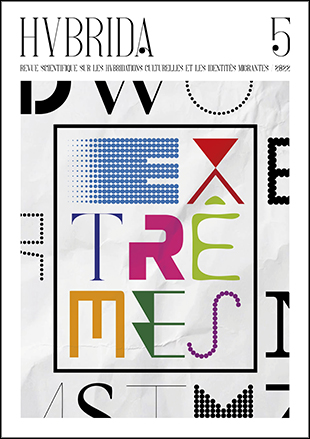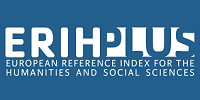Interview with Laura Alcoba: "Para qué sirven las historias"
DOI:
https://doi.org/10.7203/HYBRIDA.5(12/2022).25584Keywords:
Laura Alcoba, Par la fôret, novela contemporánea, memoria, traducción Abstract
Abstract
Par la forêt is the latest novel by Laura Alcoba (La Plata, 1968), published by Gallimard in January this year. In it, the author tells in French a story that borders on the unspeakable: a double infanticide, several suicide attempts and the experience of exile. Griselda, mother of three, kills her two youngest children. Flavia, the eldest daughter, survives not only the early death, but also the silence that, for years, shrouds the events that cannot be explained in words. In Par la forêt, a first-person narrator who meets the protagonists of this story, listens to them, takes notes and writes, brings together in a later time the words that perhaps could not be said before.
In this interview, which took place at the café Le progrés in Paris in July 2022, Laura Alcoba shares the intimately human and writerly experience of creating Par la forêt. From this novel, in retrospect, Alcoba retraces her novelistic writing, reveals her link with translation and the mother tongue, and offers a look at what to tell, what stories are for.
 Downloads
Downloads
 References
References
Alcoba, L. (2022). Par la forêt. Gallimard.
Kamenszain, T. (2016). Una intimidad inofensiva. Los que escriben con lo que hay. Eterna Cadencia.
Downloads
Published
How to Cite
-
Abstract364
-
HTML (Español)188
-
PDF (Español)312
Issue
Section
License
![]()
All the documents in the OJS platform are open access and property of their respective authors.
Authors publishing in the journal agree to the following terms:
- Authors keep the rights and guarantee HYBRIDA the right to be the first publication of the document, licensed under a Creative Commons license Attribution-NonCommercial-ShareAlike 4.0 International (CC BY-NC-SA 4.0) that allows others to share the work with an acknowledgement of authorship and publication in the journal.
- Authors are allowed and encouraged to spread their work (once published) through electronic means using personal or institutional websites (institutional open archives, personal websites or professional and academic networks profiles) once the text has been published.
















